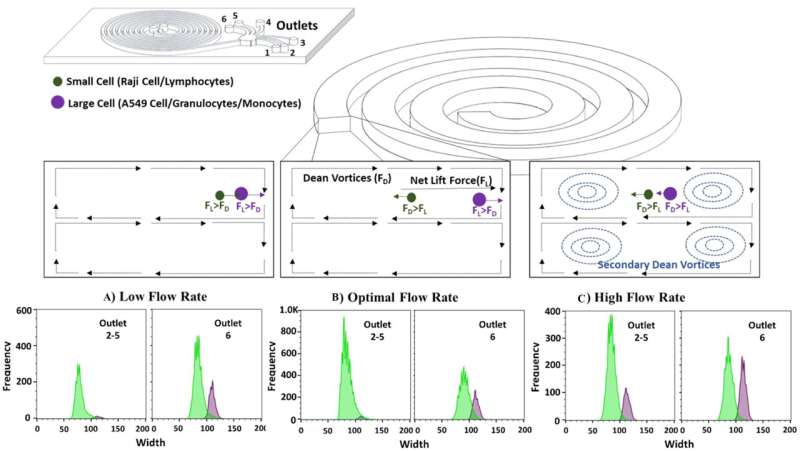This article has been reviewed according to Science X's editorial process and policies. Editors have highlighted the following attributes while ensuring the content's credibility:
fact-checked
trusted source
proofread
New tech addresses manufacturing bottlenecks for a lifesaving blood cancer treatment

Researchers from the University of South Australia have developed a new technique to significantly enhance a powerful treatment for leukemia and other blood cancers.
More than 300 Australian adults and children are diagnosed with acute lymphoblastic leukemia (ALL) every year, and relapsed B-cell ALL is the leading cause of cancer-related deaths in children and young adults.
Chimeric antigen receptor (CAR) T-cell therapy is a powerful new immunotherapy treatment for patients with aggressive lymphomas. The process takes immune cells from a cancer patient, reprograms them to attack the tumor, and then reinjects them into the patient, where they get to work binding to cancer cells and killing them.
The UniSA research, published in Cytotherapy, has shown the potential of a microfluidic technology, called inertial spiral microfluidics, to improve the CAR T-cell manufacturing process by efficiently removing contaminating cancerous cells and other large white blood cells. These cells can otherwise interfere with the CAR T-cell manufacturing process and reduce the effectiveness of the treatment.
UniSA's Future Industries Institute Ph.D. graduate Dr. Mona Elsemary says that CAR T-cell therapy is promising but ensuring the purity of T-cells extracted from patients is a challenge and a key bottleneck in the routine clinical use of this ground-breaking immunotherapy.
"Our research aims to solve this problem with the use of inertial spiral microfluidics, which we've found effective in removing unwanted contaminating cells," Dr. Elsemary says.
"This technology is more effective than other recently commercialized microfluidic platforms.
"It achieves greater T-cell purity while offering higher recovery rates, which is the key to more successful CAR T-cell therapy—especially in patients with common blood cancers like B-cell ALL."
While CAR T-cell therapy can cost more than $500,000, the disposable devices used during inertial spiral microfluidics are inexpensive and can be easily integrated into the current processes, potentially decreasing costs by up to 14% given a reduced need for rooms and personnel.
UniSA's Professor of Bioengineering and Researcher at the Future Industries Institute, Professor Benjamin Thierry, says the research team's results are promising.
"Next steps would be clinical trials, and then optimizing the process for different types of cancers," Prof Thierry says.
"Once the effectiveness and safety of this new technology has been confirmed, it could be integrated into the CAR T-cell manufacturing pathway, which we anticipate would lead to more efficient and cost-effective CAR T-cell therapy.
"This research may be a key to providing cancer patients with more effective and accessible treatment."
More information: Mona T. Elsemary et al, Enrichment of T-lymphocytes from leukemic blood using inertial microfluidics toward improved chimeric antigen receptor-T cell manufacturing, Cytotherapy (2024). DOI: 10.1016/j.jcyt.2024.05.005



















